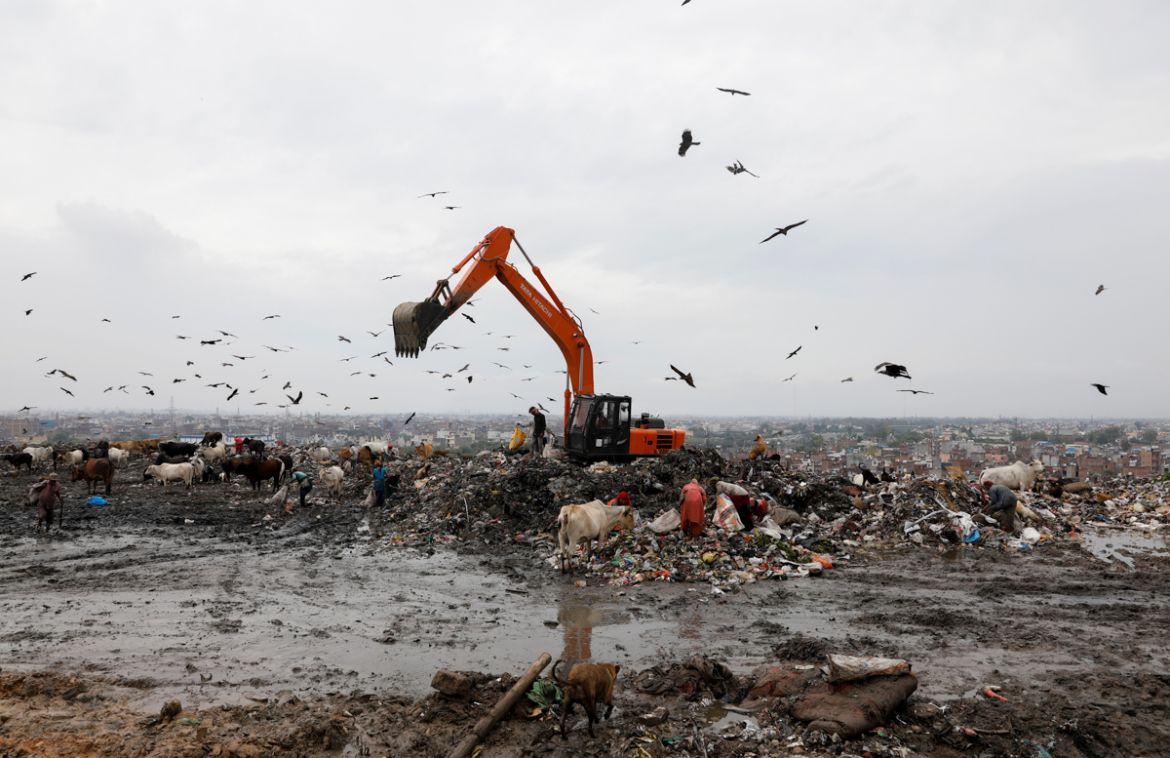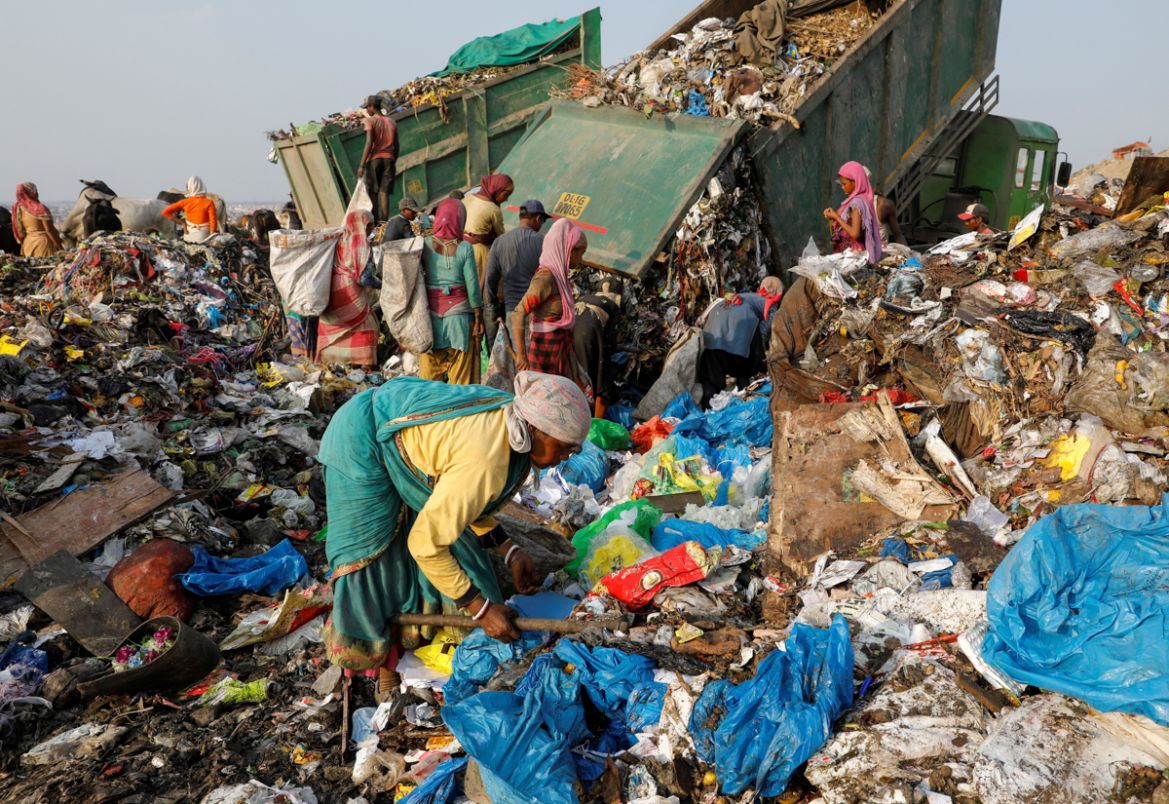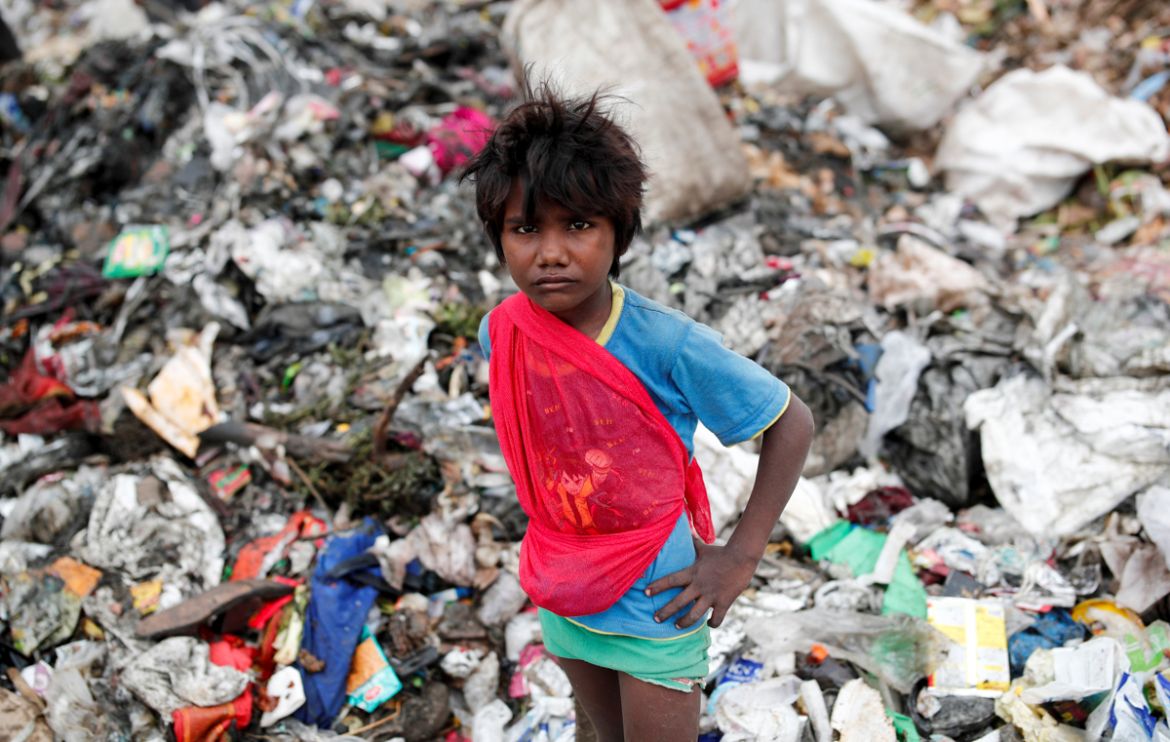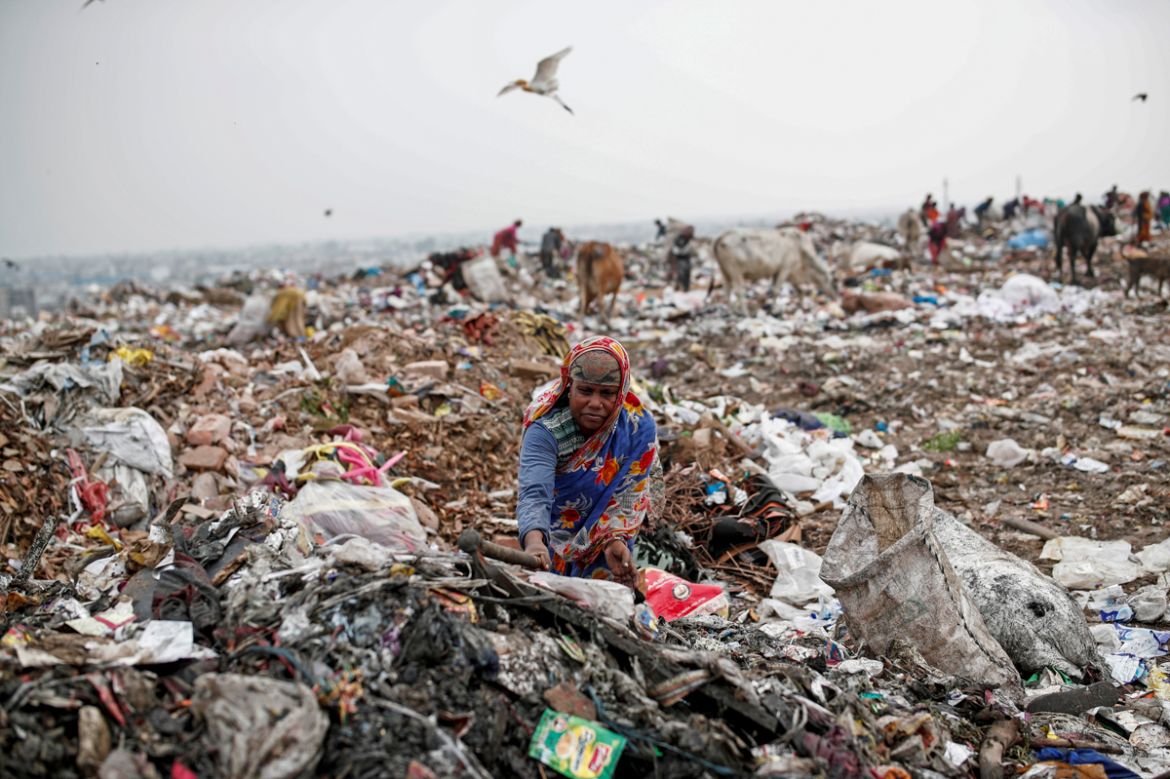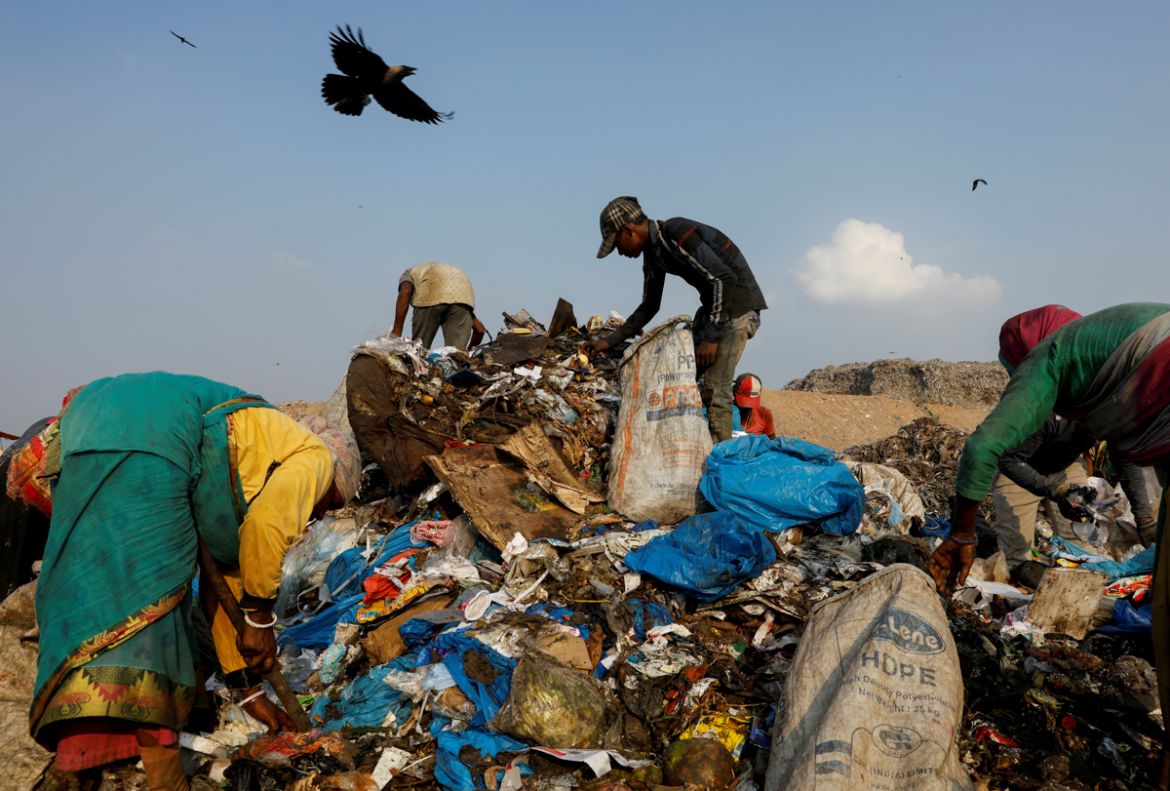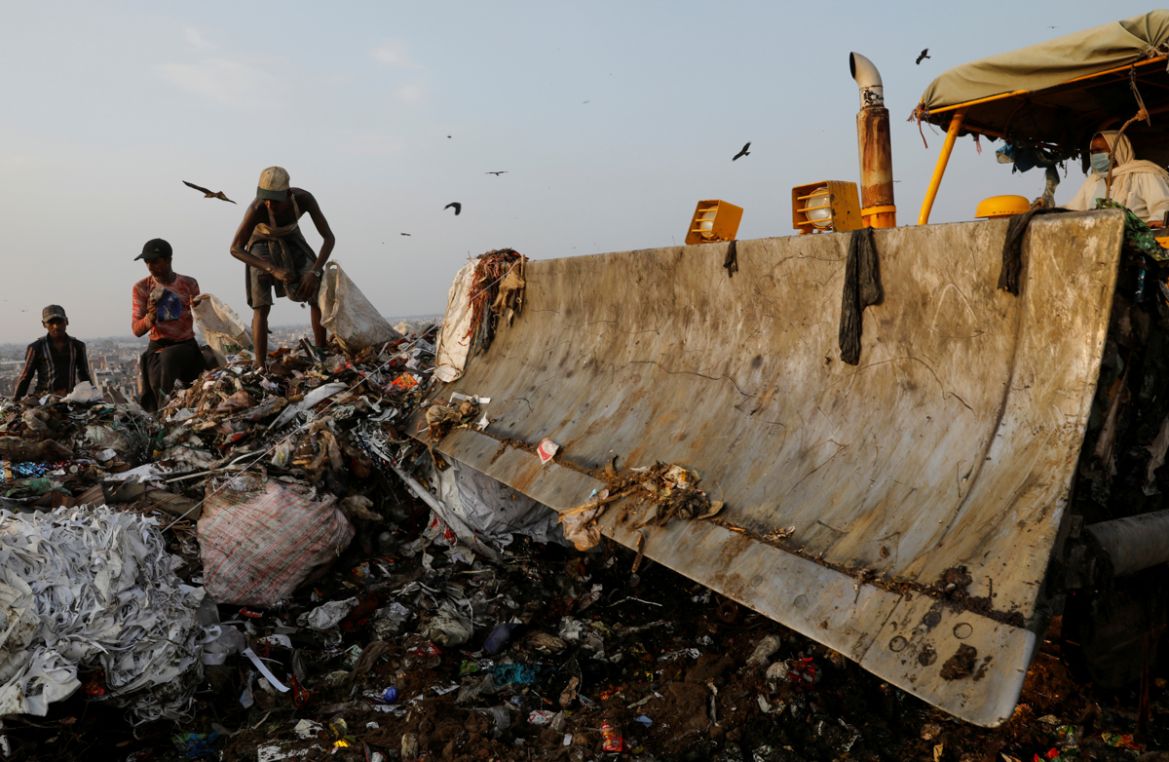In Pictures
In Pictures: India landfill site a COVID-19 risk for scavengers
Spread over 52 acres and rising 60 metres, site littered with used test kits, protective gear and blood-stained cotton.

Mansoor Khan and his wife Latifa Bibi have been collecting scraps of plastic and other items at an enormous landfill site in the Indian capital for nearly 20 years.
The $5 they earn a day enable their three children to go to school, seeking a future better than the livelihoods their parents have been able to eke out.
But over the past few months, increasing amounts of biomedical waste have been arriving at the dump – a result, experts say, of the novel coronavirus pandemic and a huge risk for those who work there.
Spread over 21 hectares (52 acres) and rising more than 60 metres (197 feet), the site is littered with used coronavirus test kits, protective gear and medical dressings stained with blood and pus – among hundreds of tonnes of waste coming daily from facilities across the city, including small hospitals and nursing homes.
Sifting through the rubbish with their bare hands, hundreds of scavengers, including children, expose themselves daily to a disease that has infected 16 million people globally and claimed over 600,000 lives.
India has reported almost 1.4 million cases overall, behind only the United States and Brazil.
Khan, 44, is aware of the dangers but feels he has little choice.
“What if we die? What if we get this disease? But fear will not fill our bellies, that is why we have to do this work,” he told Reuters news agency, standing outside his two-room house at the foot of a mountain of garbage.
Bibi, 38, said she was worried about bringing the infection home to the couple’s children, aged 16, 14 and 11.
“When I return from there, I feel afraid to enter my house because I have children at home. We are really afraid of this disease,” she said.
Dinesh Raj Bandela, an expert in biomedical waste at the New Delhi-based Centre for Science and Environment, said there are clear protocols set by the national pollution regulator to dispose of biomedical waste.
But they are not always followed during the outbreak, he said, putting those who sift through landfills at risk of contracting coronavirus and other diseases, ranging from hepatitis to HIV.
Neither the North Delhi Municipal Corporation, which runs the dump, nor India’s Central Pollution Control Board, immediately replied to requests for comment.
According to Bandela, the Indian capital used to produce nearly 600 tonnes of medical waste a day, but that has risen by 100 since the virus hit.
